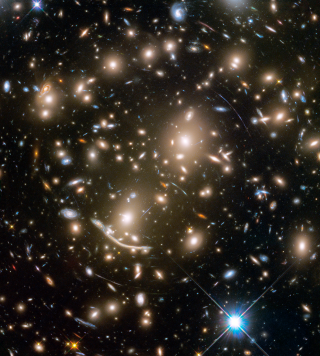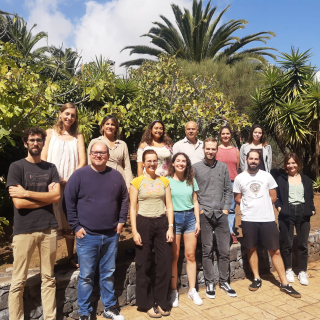Bibcode
de Lorenzo-Cáceres, A.; Sánchez-Blázquez, Patricia; Méndez-Abreu, J.; Gadotti, Dimitri A.; Falcón-Barroso, J.; Martínez-Valpuesta, I.; Coelho, Paula; Fragkoudi, Francesca; Husemann, Bernd; Leaman, Ryan; Pérez, Isabel; Querejeta, Miguel; Seidel, Marja; van de Ven, Glenn
Bibliographical reference
Monthly Notices of the Royal Astronomical Society, Volume 484, Issue 4, p.5296-5314
Advertised on:
4
2019
Citations
28
Refereed citations
22
Description
The formation of two stellar bars within a galaxy has proved challenging
for numerical studies. It is not yet clear whether the inner bar is born
via a star formation process promoted by gas inflow along the outer bar
or whether it is dynamically assembled from instabilities in a
small-scale stellar disc. Observational constraints to these scenarios
are scarce. We present a thorough study of the stellar content of two
double-barred galaxies observed by the MUSE TIMER project, NGC 1291 and
NGC 5850, combined with a two-dimensional multicomponent photometric
decomposition performed on the 3.6 μm images from S4G. Our
analysis confirms the presence of σ-hollows appearing in the
stellar velocity dispersion distribution at the ends of the inner bars.
Both galaxies host inner discs matching in size with the inner bars,
suggestive of a dynamical formation for the inner bars from small-scale
discs. The analysis of the star formation histories for the structural
components shaping the galaxies provides constraints on the epoch of
dynamical assembly of the inner bars, which took place >6.5 Gyr ago
for NGC 1291 and >4.5 Gyr ago for NGC 5850. This implies that inner
bars are long-lived structures.
Related projects

Galaxy Evolution in Clusters of Galaxies
Galaxies in the universe can be located in different environments, some of them are isolated or in low density regions and they are usually called field galaxies. The others can be located in galaxy associations, going from loose groups to clusters or even superclusters of galaxies. One of the foremost challenges of the modern Astrophysics is to
Jairo
Méndez Abreu

Traces of Galaxy Formation: Stellar populations, Dynamics and Morphology
We are a large, diverse, and very active research group aiming to provide a comprehensive picture for the formation of galaxies in the Universe. Rooted in detailed stellar population analysis, we are constantly exploring and developing new tools and ideas to understand how galaxies came to be what we now observe.
Ignacio
Martín Navarro